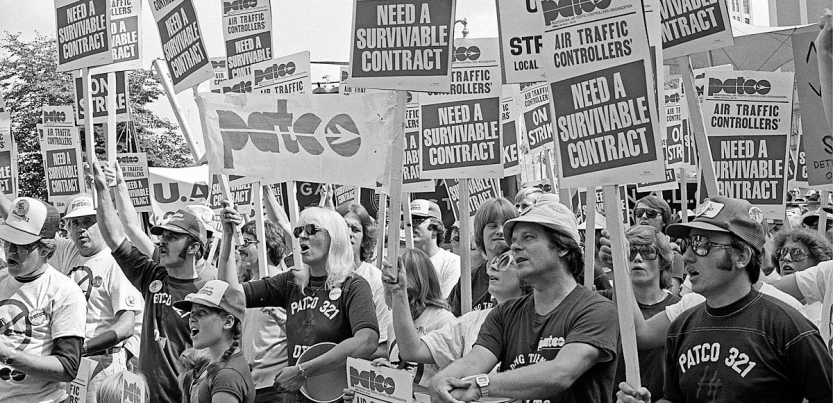Unions: Complicated Organizations with Complicated People

When we talk about organized labor in this country, to the extent that we even do, we so often just stereotype the building trades as filled with conservatives. Maybe we see SEIU as filled with immigrant liberals, but probably we aren’t talking about them at all. This all serves liberals to be able to dismiss organized labor. And look, there are plenty of people in these unions who are more conservative than we would like. But there’s plenty of people on the left too who are fighting to make their union better and the lives of everyone better too. Kim Kelly on this:
But nothing in labor (or politics) is ever that black and white. I spoke with several self-identified leftist or liberal workers in various building trades about their union’s politics, and how they feel about the stereotypes surrounding their careers. As I suspected, the real story is a lot more complicated.
The rank-and-file members, organizers, and union staffers say there is a kernel of truth to their industry’s unflattering reputation. “Those guys definitely still exist in the building trades, and that’s one thing that maybe makes the building trades more ideologically right — more space is allowed for them to exist there than in other unions or even other industries,” says Laura Gabby, a Democratic Socialists of America (DSA) member and the first woman elected to the executive board of Local 157, the largest carpenters’ local in the country. “In New York City, most of the trades have become much more diverse, but the leadership is still almost always overwhelmingly white. I think a lot of the leadership is trying to be middle-of-the-road and fairly represent everybody, and they know that that’s some part of their membership.”
A significant number of construction union members voted for Trump in 2016, and remain supportive of policies like withdrawing from the Trans-Pacific Partnership trade pact, investing in infrastructure, and renegotiating trade agreements, such as the North America Free Trade Agreement. Some unions have tried to boost diversity by recruiting more women, Black people, and people of color to the trades, and have even sought to provide more political education through initiatives like the International Brotherhood of Electrical Workers (IBEW) Committee on Political Education. But many of the people I spoke with said that racism, sexism, homophobia, and xenophobia (as well as gendered and racialized pay gaps) are still a problem on building sites. Gabby, who has worked as a union carpenter for almost nine years, tells me about the ways she’s been condescended to and harassed by her coworkers (as of 2015, the construction and extraction workforce was less than 3% female), and the other people I interviewed had either heard of or witnessed bigoted behavior on the job.
“We have a lot of racist members, and some of our leadership and culture reflects this fact,” a socialist union telephone worker in Florida, who requested anonymity, tells me via email. “Divide and conquer is the boss’s oldest trick, and we’re still falling for that shit — obviously, not all building trades union members. But this rep[utation] is not entirely undeserved.”
“A friend once put it to me very succinctly: ‘A building trades guy is someone who will look you in the eye, shake your hand, call you a brother, and build you a concentration camp if you asked him to,’” says one former researcher for the United Brotherhood of Carpenters. “Solidarity meant being in a fight until our union got an agreement to build that new condo complex or prison.”
It’s a complicated situation of course. Moreover, there are of course conservative members of more progressive unions. Kelly does overstate how dominant socialism was in the early labor movement, by quite a good bit. It was part of the picture, of course, but not the dominant political ideology by any stretch. The labor movement has always been filled with leftist and rightist elements, with racist and fighters for racial justice, with people who want wide-ranging political revolution and people who will happily vote for Republicans because they believe in that party except maybe for its position on workers. I mean, hell, John L. Lewis was a registered Republican and voted for them for most of his career, including most famously hating FDR by 1940. Basically, we should neither stereotype organized labor as a much of racist, misogynist white men nor should we assume that the labor movement is ever going to be the radical force lots of people wish it would be.
